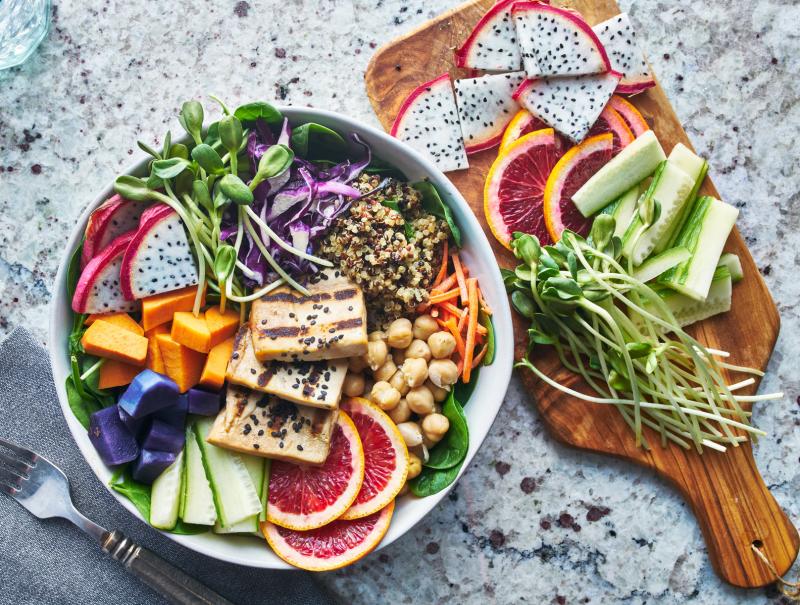
A vegan diet among pregnant women appears to have no impact on the umbilical-cord levels of vitamin B12, folate, ferritin and haemoglobin, according to a study presented at the 2020 Annual Meeting of the Society for Maternal-Fetal Meeting (SMFM 2020).
“Vegan women who do not take any vitamin supplementation are much more affected than omnivores,” the researchers said. “Thus, they should be followed for their B12 levels and encouraged to take vitamin supplementation.”
Of the 273 pregnant women who met the eligibility criteria, 60 were vegan, 64 were vegetarian, 37 were pescatarian and 112 were omnivore. Vegans had significantly lower maternal ferritin levels than pescatarians (27±17 vs 60±74 ng/ml; p=0.021), but not compared to vegetarians (27±17 vs 44±72 ng/ml) and omnivores (27±17 vs 34±45 ng/ml). [SMFM 2020, abstract 113]
Moreover, no between-group differences were observed for the following umbilical-cord levels: B12, folate, ferritin and haemoglobin.
A subanalysis that compared women who consumed multivitamins, B12 and iron supplements during pregnancy to those who did not revealed a significant difference in the level of umbilical-cord B12 (1,002±608 vs 442±151 pg/ml; p=0.000) and in maternal blood B12 (388±209 vs 219±95 pg/ml; p=0.030) only among vegans.
This prospective observational study recruited women with a singleton pregnancy who maintained the same diet for a minimum of 3 months prior to current pregnancy and until delivery during the period from May 2018 through June 2019. All participants gave birth in a single tertiary university affiliated medical centre.
Women were grouped into four categories based on their diet: vegan, vegetarian, pescatarian and omnivore (regular diet). Then, they completed eating questionnaires during the third trimester. The researchers performed maternal blood tests prior to delivery and cord-blood tests immediately after delivery for complete blood count and levels of ferritin, vitamin B12, folate and albumin.
“As there is limited data concerning the impact of vegan and vegetarian diet on levels of different minerals and nutrients in the umbilical cord, we aimed to determine the influence of maternal diet on umbilical-cord levels of vitamin B12, folate, ferritin and haemoglobin,” they said.
A paper by Baroni and colleagues suggested that a vegan diet is only suitable during pregnancy, lactation, infancy and childhood if it is “well-planned.” [Nutrients 2018;doi:10.3390/nu11010005]
“Balanced vegan diets meet energy requirements on a wide variety of plant foods and pay attention to some nutrients that may be critical, such as protein, fibre, omega-3 fatty acids, iron, zinc, iodine, calcium, vitamin D and vitamin B12,” the authors said.
This was supported by the Academy of Nutrition and Dietetics, which stated that “appropriately planned vegetarian, including vegan, diets are healthful, nutritionally adequate, and may provide health benefits for the prevention and treatment of certain diseases.” [J Acad Nutr Diet 2016;116:1970-1980]
In addition, the Academy stressed that these diets are suitable for all stages of life, including pregnancy, lactation, infancy, childhood, adolescence, older adulthood, and for athletes.